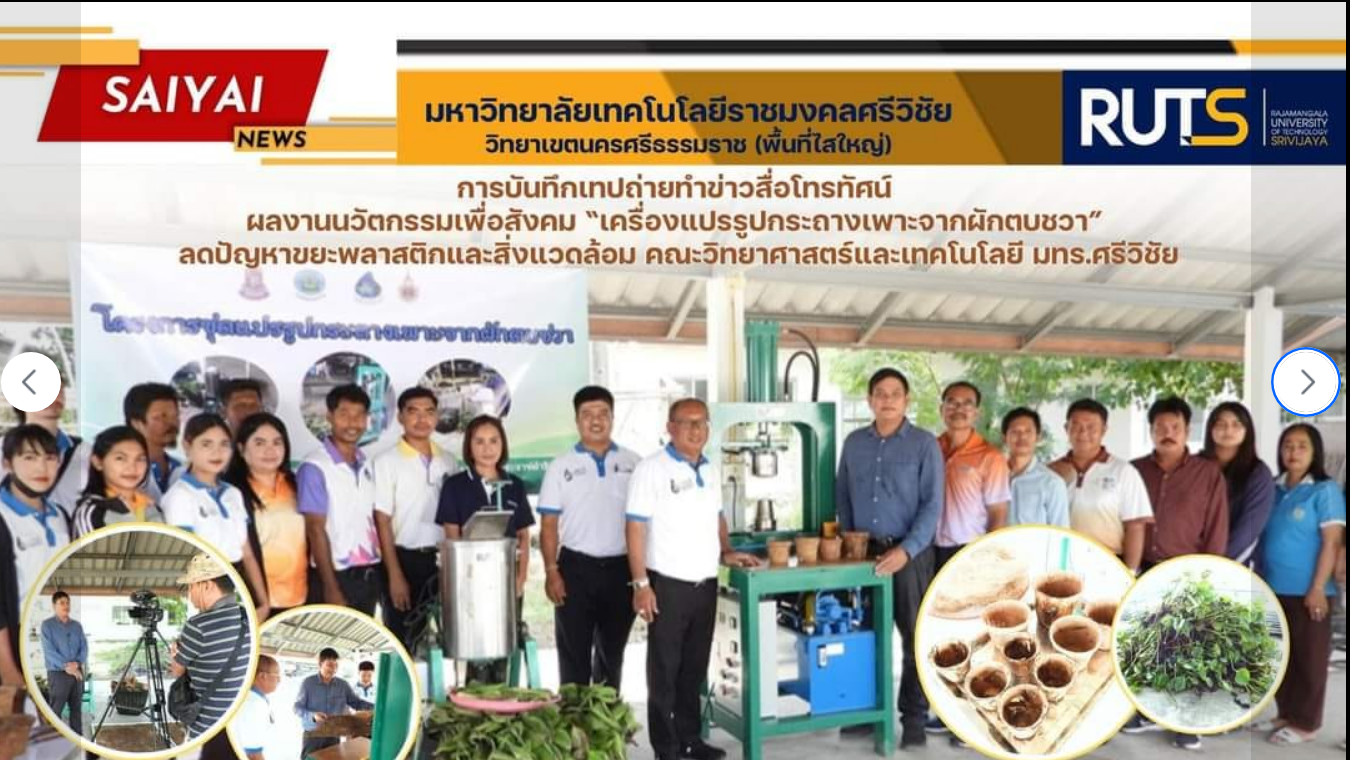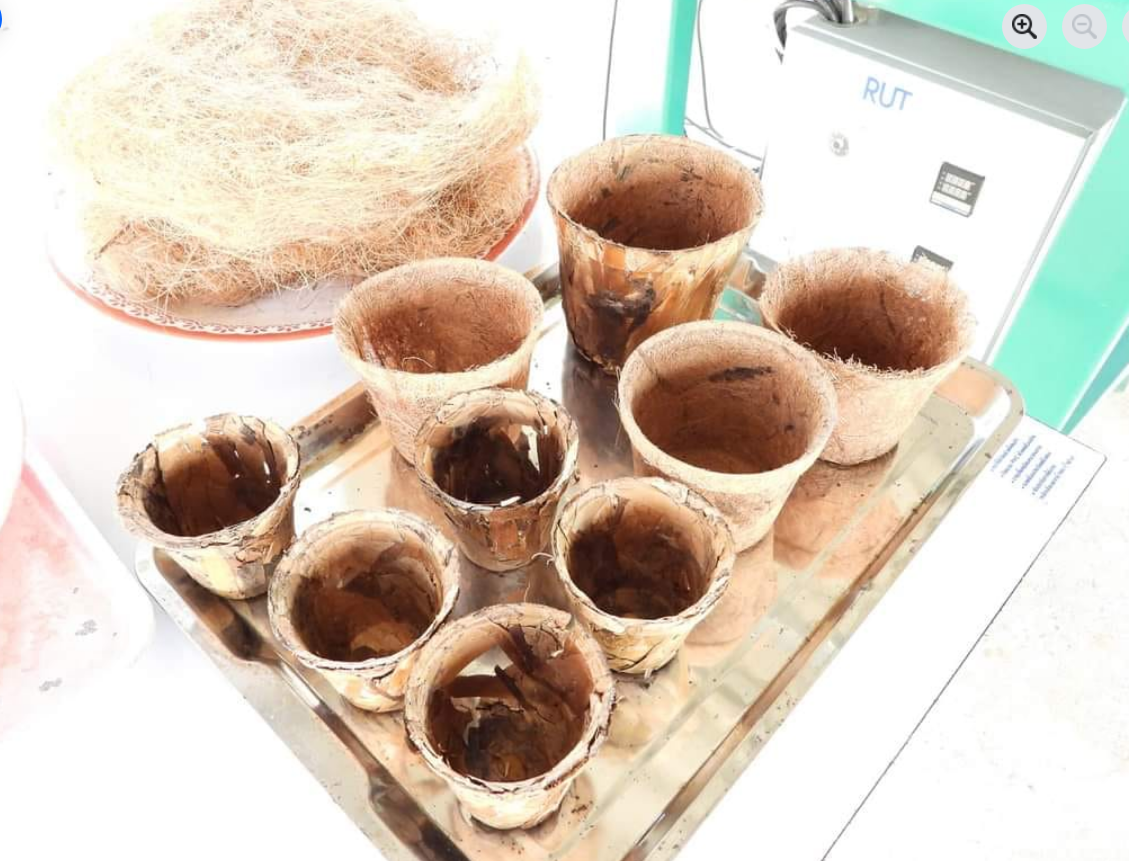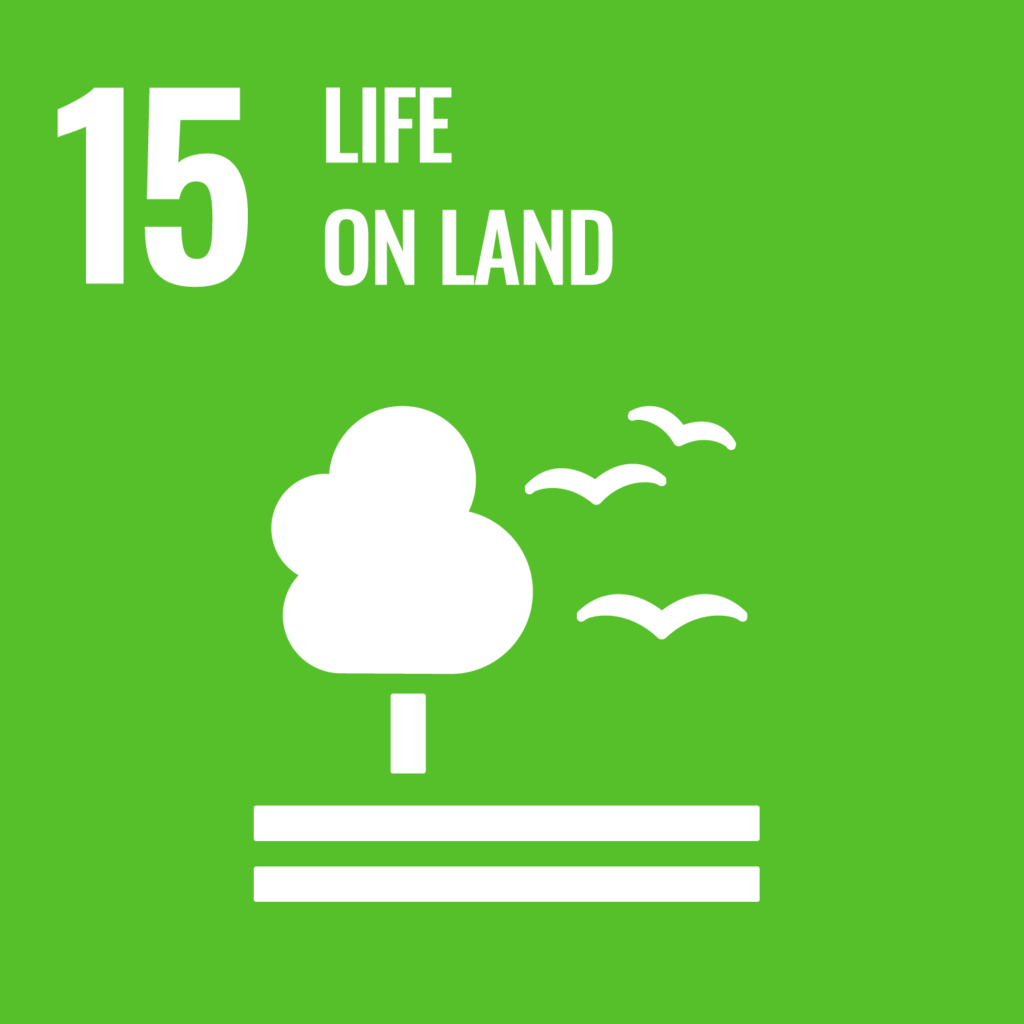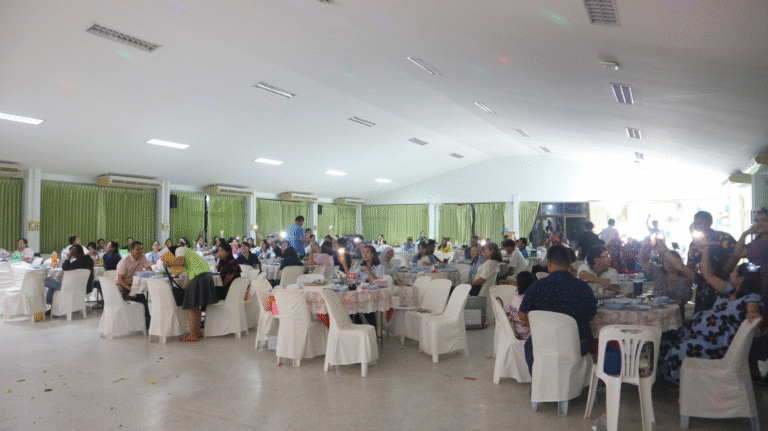Reporters: Asst.Prof.Dr. Prapot Maliwan
Assoc.Prof.Dr. Pornsil Seephueak
Asst.Prof.Dr. Nion Chirapongsathonkul
Asst.Prof.Dr. Worawitoo Meesook
Evidence Date: during 2024 Jan-Dec
Related Indicator: 15.4.2
Details:
The teaching and learning activities under the supervision of Dr. Prasert Nonthakan, Faculty of Science, Rajamangala University of Technology Srivijaya (RUTS), are aligned with SDG 15.4.3.2, which focuses on promoting the conservation and sustainable use of natural resources. Students participated in a practical training project on producing plant pots from water hyacinth, an aquatic weed that causes ecological problems. Transforming this waste material into useful biodegradable pots not only reduces environmental pollution but also promotes resource utilization through the Circular Economy approach. This practice integrates environmental awareness with hands-on learning, enabling students to understand the importance of sustainable resource management and ecosystem conservation through scientific application.
The course encourages students to apply scientific and technological knowledge in determining suitable material ratios to produce durable and eco-friendly plant pots. Through experimentation and design, students develop skills in analytical thinking, teamwork, and creative problem-solving. They also learn to innovate in response to local environmental needs while emphasizing resource efficiency and ecological responsibility. This learning process reflects the university’s mission to produce practically skilled graduates who can “think, do, and apply” with ethical and moral awareness. It also embodies RMUTSV’s commitment to developing scientific and technological competencies that contribute to sustainability and local innovation.
This teaching and learning approach not only provides students with theoretical and practical experiences but also fosters community engagement through the creation of real-world applications. The production of plant pots from water hyacinth demonstrates how scientific knowledge can be applied to environmental conservation and community-based innovation. RMUTSV, as a regional higher education institution, plays a vital role in developing knowledge and technology to address environmental issues and promote sustainability. The activity serves as a model for education for sustainable development (ESD) by reducing aquatic waste, creating reusable products, and strengthening students’ understanding of natural resource management. Ultimately, it prepares graduates to become key contributors to ecosystem preservation and sustainable community advancement.






